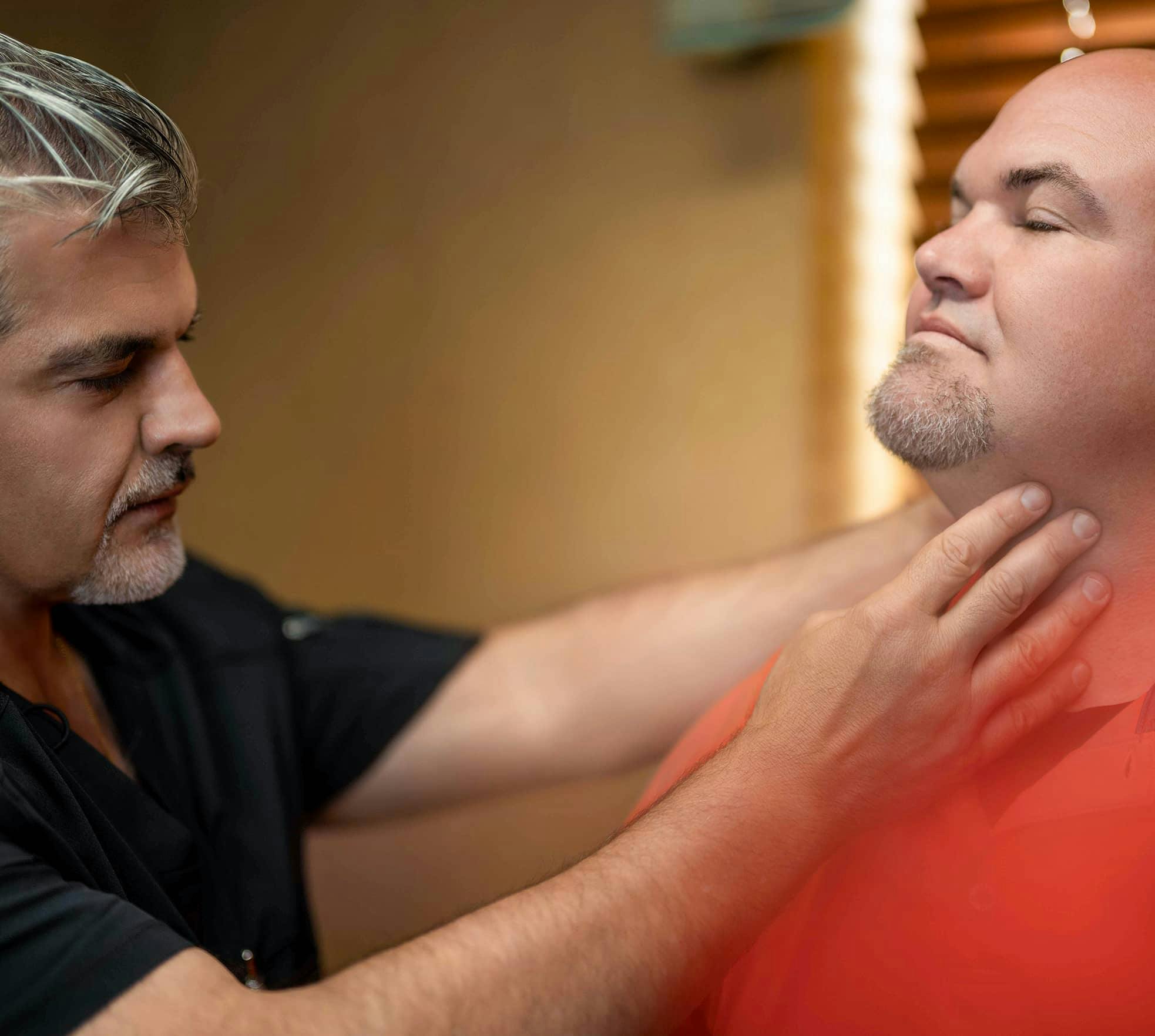Neck pain is a common complaint with various origins. The Center for the Functional Restoration of the Spine takes a holistic approach to neck pain, offering individualized care plans that integrate non-invasive therapies to relieve discomfort.
Neck Pain FAQ
Why do I have neck pain?
How is neck pain diagnosed?
What are the treatments for neck pain?
Would I need surgery for my neck pain?
Why do I have neck pain?
Neck pain is usually due to damage or deterioration of your musculoskeletal structures. Your neck is vulnerable to both wear-and-tear and acute injuries because it has less protection than other areas of your spine. It's relatively easy to strain a muscle or tendon, or nerves in your cervical spine to come under pressure from bones, ligaments, or intervertebral discs that are damaged or diseased. Some of the more common causes of chronic neck pain include:
- Cervical stenosis
- Degenerative disc disease
- Facet joint syndrome
- Osteoarthritis
- Herniated cervical discs
- Cervical radiculopathy
- Spondylosis
It's not uncommon for neck problems to cause other unpleasant feelings, such as tingling, prickling, or burning, in addition to pain. These sensations radiate from your neck down your arms. You might also experience weakness and numbness in your arms due to pressure on the nerves in your neck.
How is neck pain diagnosed?
To diagnose the cause of your neck pain in Toms River, the Center for the Functional Restoration of the Spine team conducts a thorough physical examination and reviews your medical history and current symptoms. It's likely that for an accurate diagnosis, you’ll need to undergo diagnostic tests such as:
- X-rays
- CT scan
- MRI scan
- Bone scan
- Discogram
- Myelogram
- Nerve conduction velocity (NCV) test
- Electromyogram
These tests can pinpoint the cause of your neck pain and determine the extent of any damage or deterioration.
What are the treatments for neck pain?
The Center for the Functional Restoration of the Spine team is likely to begin your neck pain treatment with a selection of conservative approaches such as physical therapies, medication, or acupuncture. These methods are typically successful for the majority of patients. If your neck pain doesn’t improve, many minimally invasive procedures may also help. Injections of steroids into the epidural space around your spine could reduce tissue inflammation significantly. Other options include percutaneous disc nucleoplasty and spinal cord stimulation.
Would I need surgery for my neck pain?
If other methods don’t relieve your neck pain, you might need to consider surgery. The team at the Center for the Functional Restoration of the Spine are experts in minimally invasive spine surgery (MISS) and robotic surgery, which help minimize tissue damage, pain, bleeding, and scarring. Your recovery is likely to be shorter, too. Surgery options for neck pain include:
- Microdiscectomy
- Anterior cervical discectomy and fusion (ACDF)
- Cervical artificial disc replacement
- Posterior cervical laminectomy
- Posterior cervical laminoplasty
- Posterior cervical foraminotomy
- Anterior cervical corpectomy
If you have persistent or severe neck pain, the team at the Center for the Functional Restoration of the Spine can help. Call the office or schedule a consultation online today.







